Mathematics is an essential subject that plays a crucial role in our everyday lives. From balancing our checkbooks to measuring the ingredients for our favorite recipes, we use math every day without even realizing it. But despite its importance, many people find math challenging and intimidating. That’s where World Math Day comes in.
World Math Day is an annual event celebrated on the first Wednesday in March, organized by 3P Learning. The day is dedicated to promoting mathematics education and encouraging students of all ages to develop an interest in math. The event was first held in 2007 and has since grown to become a global phenomenon, with millions of students from around the world participating in math-based activities and competitions.
On World Math Day, students are invited to participate in a 48-hour online math competition, where they can test their skills against other students from around the world. The competition is designed to be fun and engaging, with interactive games and challenges that help to make math more accessible and enjoyable for students of all ages.
World Math Day is also an opportunity to promote the importance of math education and to raise awareness about the many benefits that come with developing strong math skills. Math is a fundamental subject that is essential for success in many fields, including science, engineering, finance, and technology. By encouraging students to develop an interest in math and providing them with the tools and resources they need to succeed, World Math Day is helping to create a brighter future for all.
World Math Day also features a range of activities and resources designed to engage students in math and promote a love for the subject. These activities may include puzzles, games, quizzes, and other math-related challenges that help to make learning fun and engaging.
The event is open to students of all ages and levels, from kindergarten through high school and beyond. It is free to participate, and schools and teachers are encouraged to get involved and use the resources provided to help promote math education in their classrooms.
World Math Day is also an opportunity to celebrate the achievements of students who have excelled in math and to recognize the hard work and dedication of teachers who have helped to inspire and guide them. By showcasing the many benefits of math education and highlighting the successes of students and teachers around the world, World Math Day is helping to raise awareness about the importance of math and inspire a new generation of learners.
The Importance of Math Education
Math education is essential for success in many areas of life, including academic and career pursuits. Here are some reasons why math education is so important:
- Problem-solving skills: Math education helps develop critical thinking and problem-solving skills that can be applied in a wide range of contexts. Whether it’s calculating a budget, designing a building, or analyzing data, the ability to think logically and solve problems is a fundamental skill that is highly valued by employers and essential for success in many fields.
- Career opportunities: Many of today’s most in-demand and well-paying jobs require strong math skills. For example, careers in science, technology, engineering, and mathematics (STEM) fields often require advanced math education, and even careers in business, finance, and healthcare can benefit from a solid foundation in math.
- Improved cognitive function: Research has shown that studying math can improve cognitive function, memory, and overall brain health. Math education challenges the brain, requiring students to think deeply, reason logically, and focus intently, all of which can have long-term benefits for brain function.
- Increased confidence: Developing math skills can boost self-confidence and self-esteem. As students become more proficient in math, they may feel more confident tackling other challenging tasks and feel more empowered to take on new learning opportunities.
- Daily life applications: Math is an essential part of daily life, from calculating tips at a restaurant to balancing a checkbook. Having a strong foundation in math can help individuals make informed decisions and avoid common financial pitfalls.
Overall, math education is crucial for success in life, both academically and professionally. By developing strong math skills, students can unlock a world of opportunities and achieve their full potential.
Fun ways to learn Math
Learning math doesn’t have to be boring or difficult. There are many fun and engaging ways to make math education more enjoyable and effective. Here are some ideas for fun ways to learn math:
- Games: Math games are a great way to make learning math fun and engaging. Games like chess, checkers, and even video games like Minecraft can help develop problem-solving skills and improve math skills.
- Puzzles: Puzzles, such as crosswords and Sudoku, are a fun way to challenge the brain and improve math skills. These types of games help improve pattern recognition, logic, and problem-solving abilities.
- Real-world examples: Using real-world examples is a great way to help students see the practical applications of math. For example, using cooking or baking to teach fractions, or using sports statistics to teach data analysis.
- Hands-on activities: Hands-on activities, such as building models, constructing puzzles, or designing structures, can help students better understand mathematical concepts and apply them to real-world situations.
- Math-related challenges: Challenging students to solve math-related puzzles or brain teasers can be a fun way to develop their problem-solving skills and improve their math abilities.
- Technology: Technology can be a great way to make learning math more engaging and interactive. Educational apps, online games, and interactive whiteboards can all be used to teach math in a fun and engaging way.
- Group projects: Collaborating on group projects or competitions, such as math Olympiads, can be a fun way to learn math and build teamwork skills.
Overall, there are many fun and engaging ways to learn math. By incorporating these types of activities into math education, students are more likely to develop a love for math and a deeper understanding of its practical applications.
The benefits of participating in World Math Day?
World Math Day is an annual event where students from all over the world participate in an online math competition. Here are some benefits of participating in World Math Day:
- Improve math skills: World Math Day is a great way for students to practice and improve their math skills. The competition challenges students to solve math problems quickly and accurately, which can help them develop their computational skills.
- Foster global awareness: World Math Day brings together students from all over the world to participate in a common event. By participating in the competition, students can develop an awareness of different cultures and ways of thinking.
- Boost confidence: Successfully completing math problems within the given time can give students a sense of accomplishment and boost their confidence in their math abilities.
- Increase motivation: The competitive nature of the event can motivate students to improve their math skills and strive for excellence.
- Encourage teamwork: World Math Day also offers the opportunity for students to participate in team competitions, which can encourage teamwork and collaboration.
- Fun and engaging: World Math Day provides a fun and engaging way for students to practice math skills and compete with other students from around the world.
Overall, participating in World Math Day can be a fun and rewarding experience for students, helping them to improve their math skills, boost their confidence, and develop a global perspective.
Success stories from past World Math Day participants:
There have been many success stories from past World Math Day participants. Here are a few examples:
- A 13-year-old student from India, named Rajveer Meena, won the title of World Math Champion in 2019. He was able to answer 182 math questions correctly in just one minute, beating out competitors from around the world.
- A group of students from a school in South Africa participated in World Math Day and won the team competition. The students were able to work together to solve math problems quickly and accurately, demonstrating the value of teamwork and collaboration.
- A student from the United States, named Albert Xu, won the title of North American Math Champion in 2018. He was able to answer 192 math questions correctly in just one minute, demonstrating his impressive math skills and quick thinking abilities.
- A group of students from a school in the United Kingdom participated in World Math Day and were able to improve their math skills significantly over the course of the competition. The students reported feeling more confident in their math abilities and more motivated to continue learning and practicing math.
Overall, past World Math Day participants have demonstrated their impressive math skills, teamwork abilities, and motivation to learn and improve. The competition has provided a platform for students from around the world to showcase their talents and learn from one another.
The role of technology in Math Education?
Technology has played a significant role in transforming the way we teach and learn math. Here are some of the ways technology has impacted math education:
- Interactive tools: Technology has made it possible for educators to create interactive math tools that engage students and make math learning more fun and engaging. For example, there are online tools that allow students to visually explore mathematical concepts, such as graphing calculators, geometry software, and interactive simulations.
- Personalized learning: Technology has also made it possible to personalize math education for individual students. Adaptive learning technologies can analyze a student’s performance and adjust the level of difficulty of the problems presented to them. This allows students to learn at their own pace and get the support they need to master math concepts.
- Collaboration and communication: Technology has made it easier for students and teachers to collaborate and communicate with one another. Online discussion boards, chat rooms, and video conferencing tools allow students and teachers to interact in real-time, even if they are in different locations.
- Accessibility: Technology has made math education more accessible to students with disabilities. For example, there are software and apps that can help students with visual impairments to read math equations and problems.
- Data analysis: Technology can also be used to analyze student performance data and provide insights into areas where students may be struggling. This data can then be used to make adjustments to the curriculum or provide additional support to students who need it.
Overall, technology has transformed the way math is taught and learned. It has made math education more engaging, accessible, and personalized, and has opened up new opportunities for collaboration and communication between students and teachers.
Addressing Math Anxiety
Math anxiety is a common problem that affects many students, causing them to feel nervous or anxious about math classes and math-related tasks. Here are some strategies for addressing math anxiety:
- Identify the source of anxiety: Try to identify what specifically is causing the anxiety. Is it a fear of getting the wrong answer, feeling overwhelmed by the amount of work, or difficulty understanding concepts? Understanding the source of anxiety can help students and teachers develop strategies to address it.
- Practice relaxation techniques: Deep breathing, visualization, and progressive muscle relaxation can help reduce anxiety symptoms. Encouraging students to practice these techniques regularly can help them feel calmer during math class.
- Provide a supportive learning environment: Creating a supportive and positive learning environment can help students feel more comfortable and less anxious. Teachers can encourage students to ask questions and provide positive feedback when students make progress.
- Build confidence: Focusing on building students’ confidence in their math abilities can help reduce anxiety. Teachers can use positive reinforcement to help students see their progress and provide opportunities for them to succeed.
- Use technology: Technology can provide a fun and engaging way for students to practice math skills. Interactive math games and apps can help students build skills while also reducing the pressure and anxiety associated with traditional classroom assignments.
- Seek additional support: If math anxiety persists, students can seek additional support from a tutor, school counselor, or other professional. These individuals can help students identify the root cause of their anxiety and develop strategies to overcome it.
Overall, addressing math anxiety requires a multi-faceted approach that involves identifying the source of anxiety, creating a supportive learning environment, building confidence, and using technology and other resources to reduce pressure and promote learning.
World Math Day Images
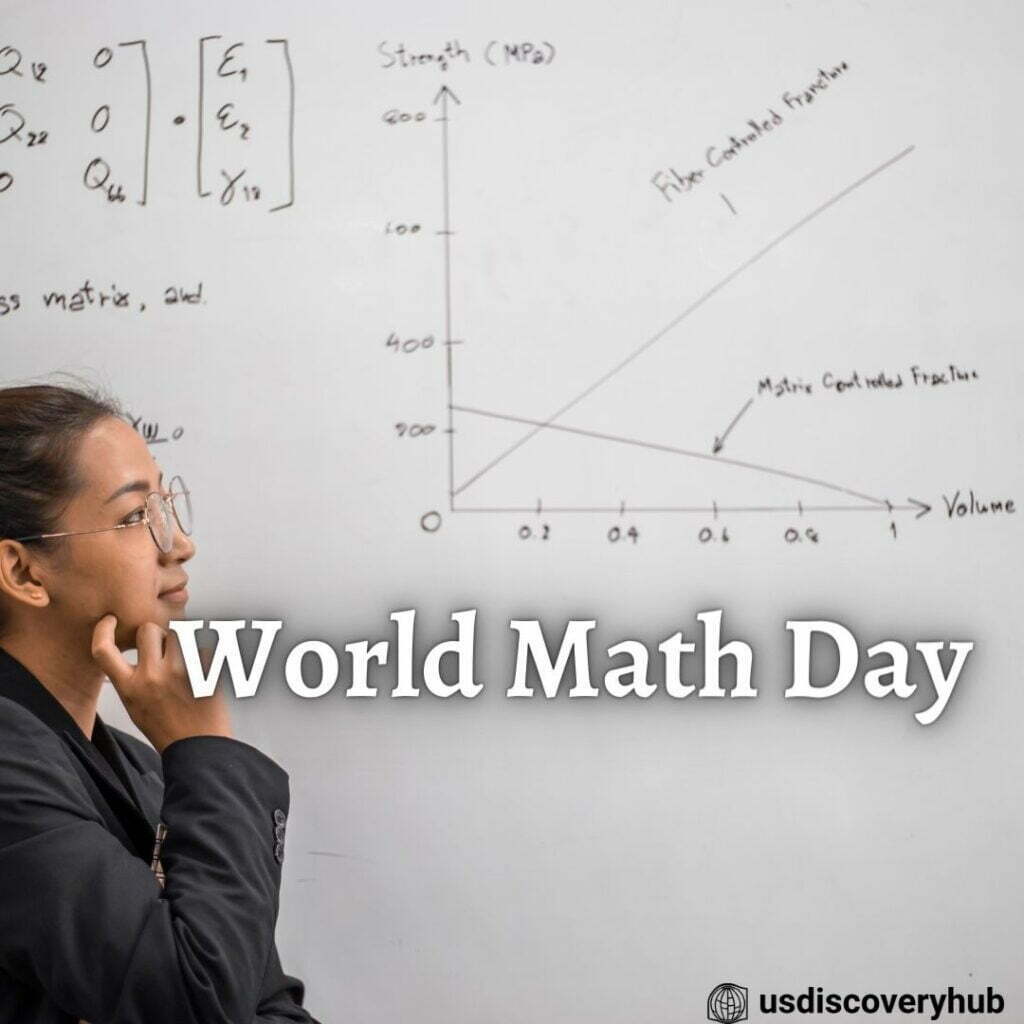
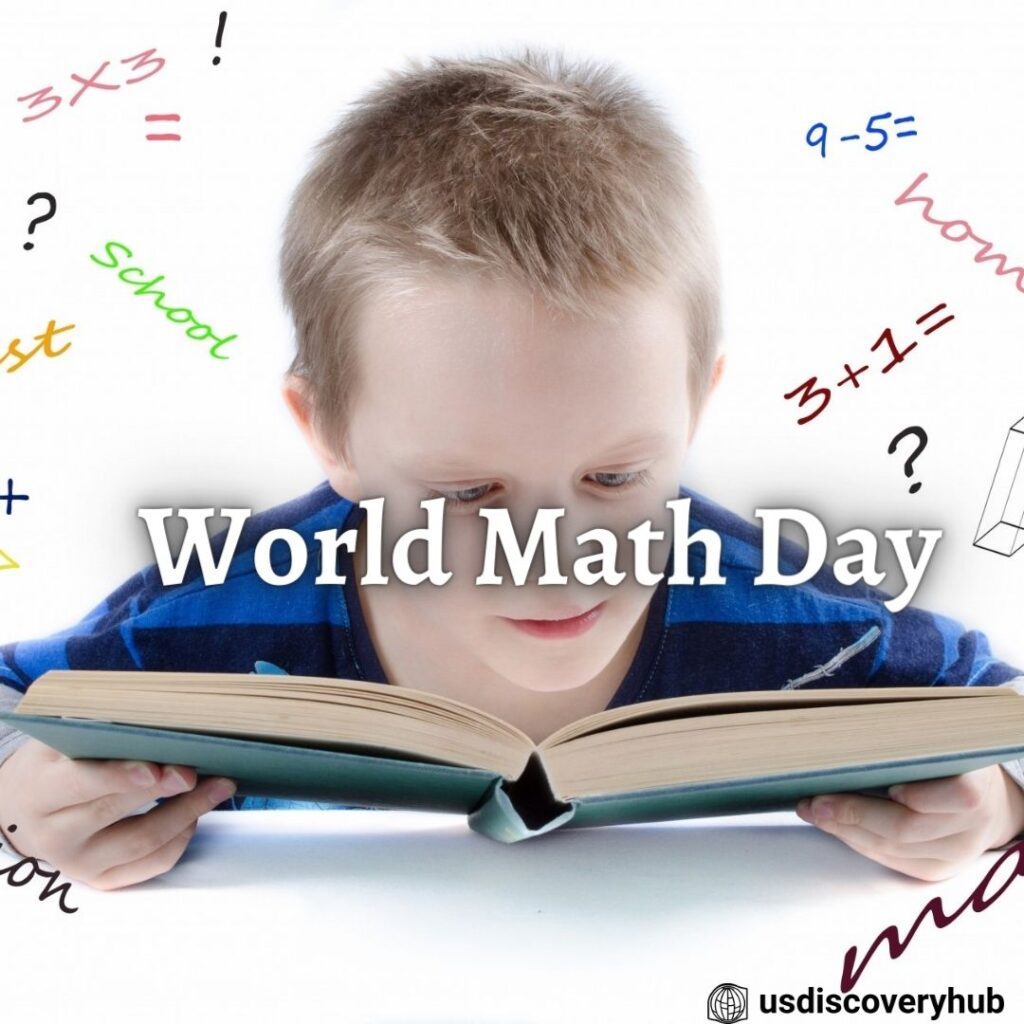
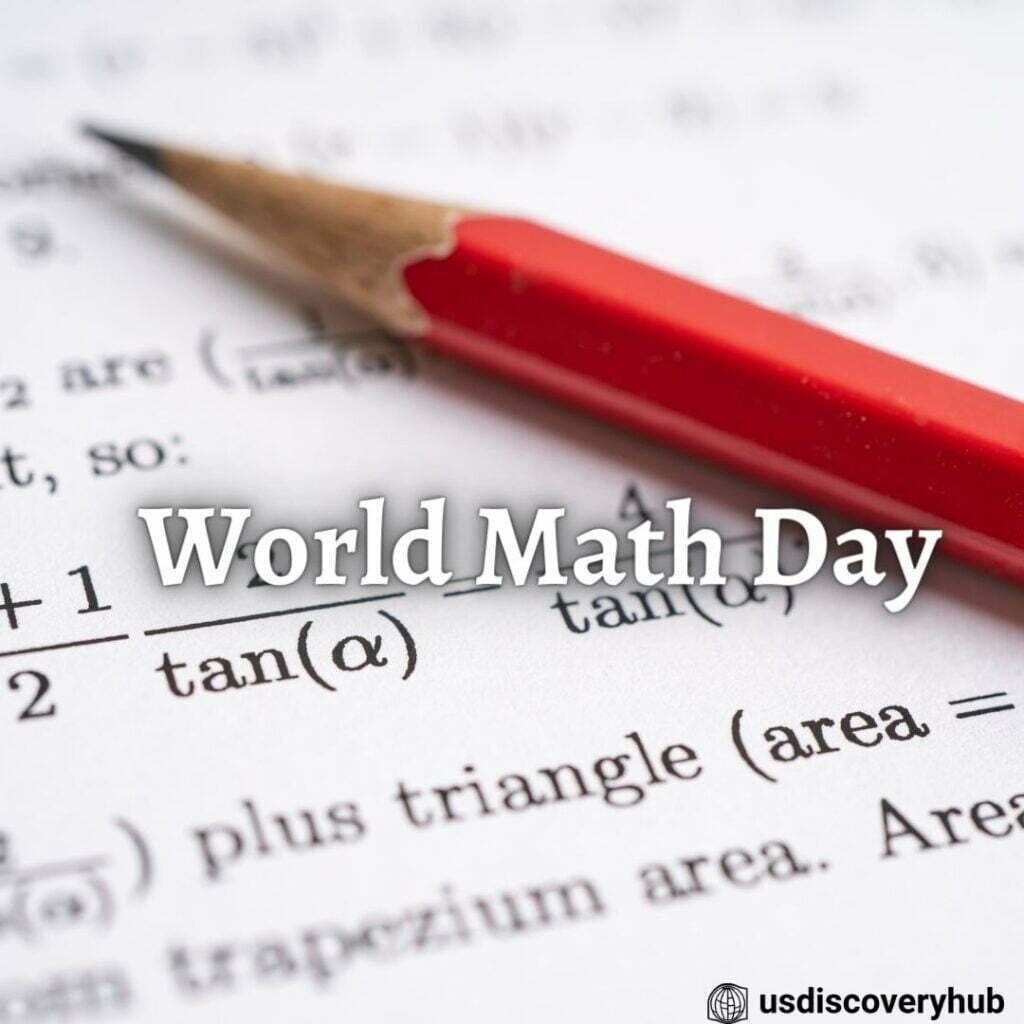
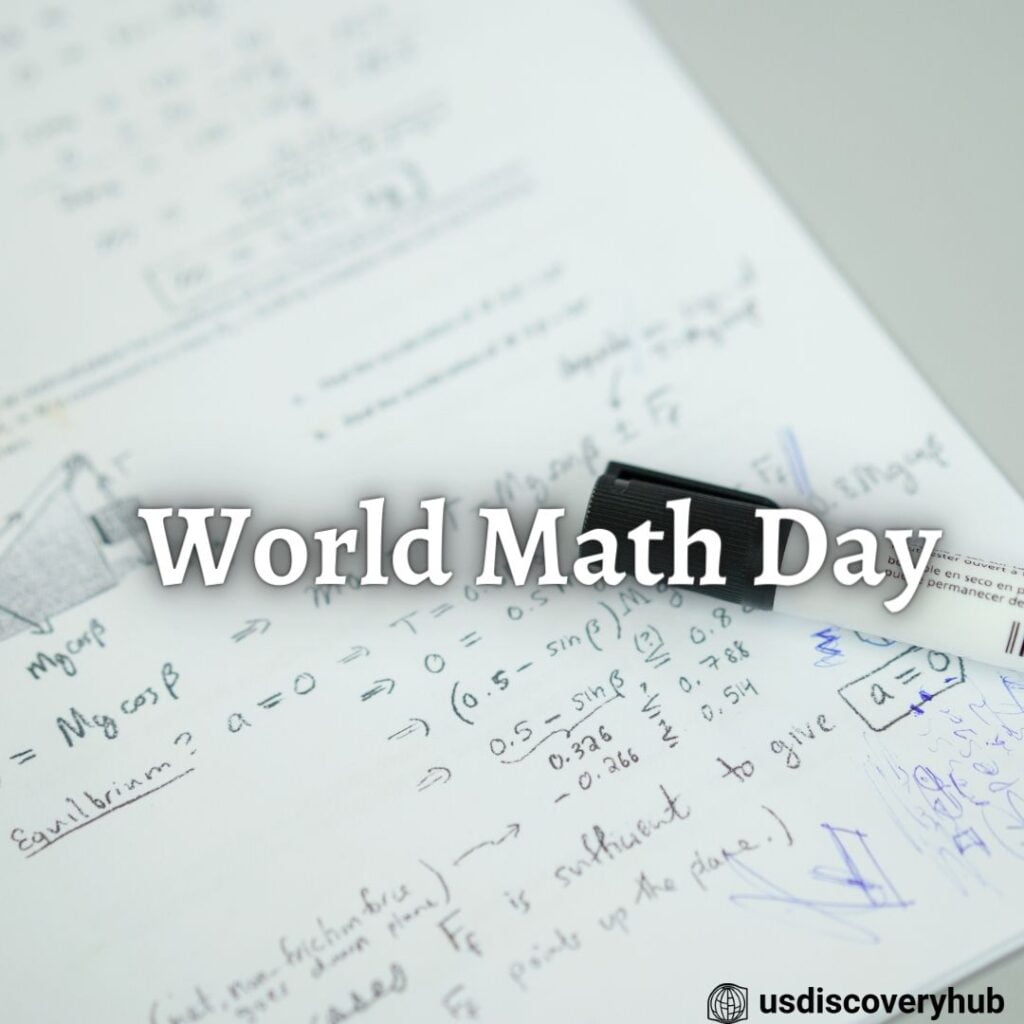
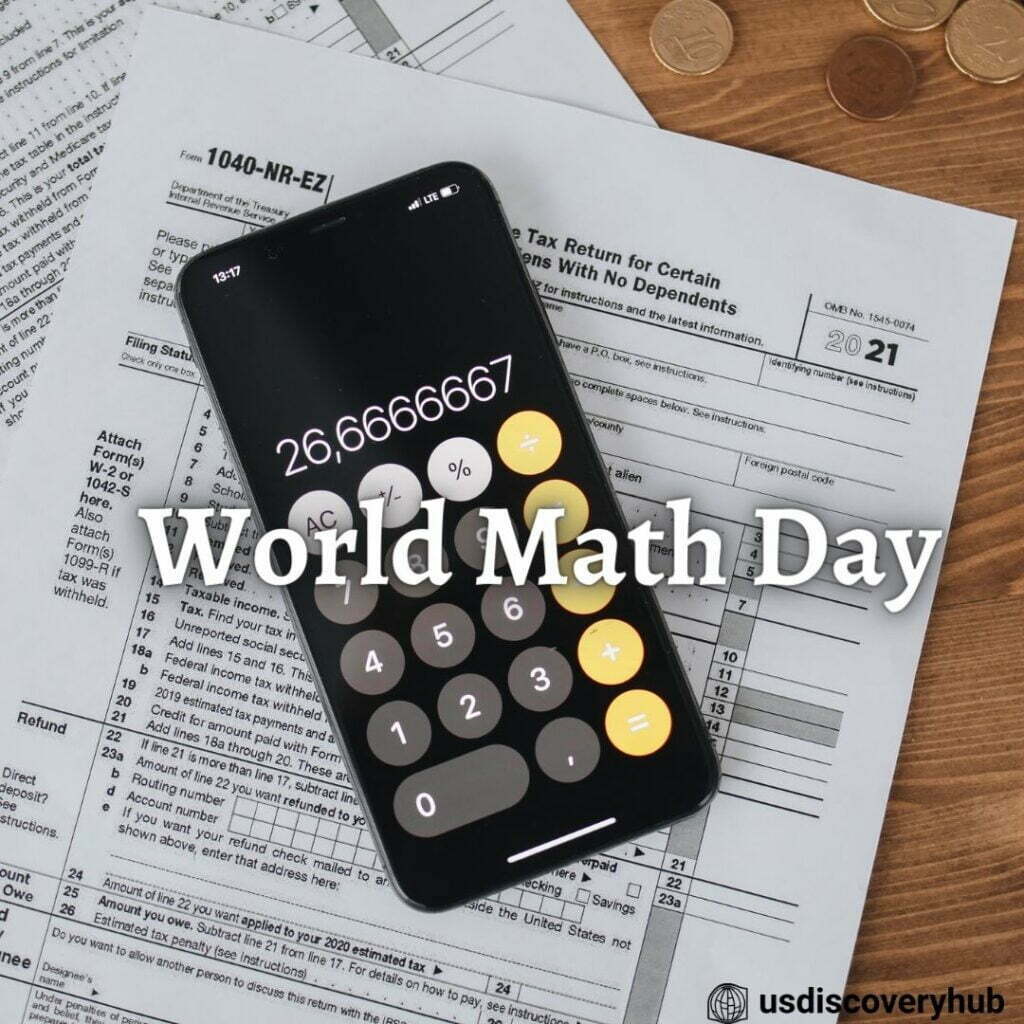
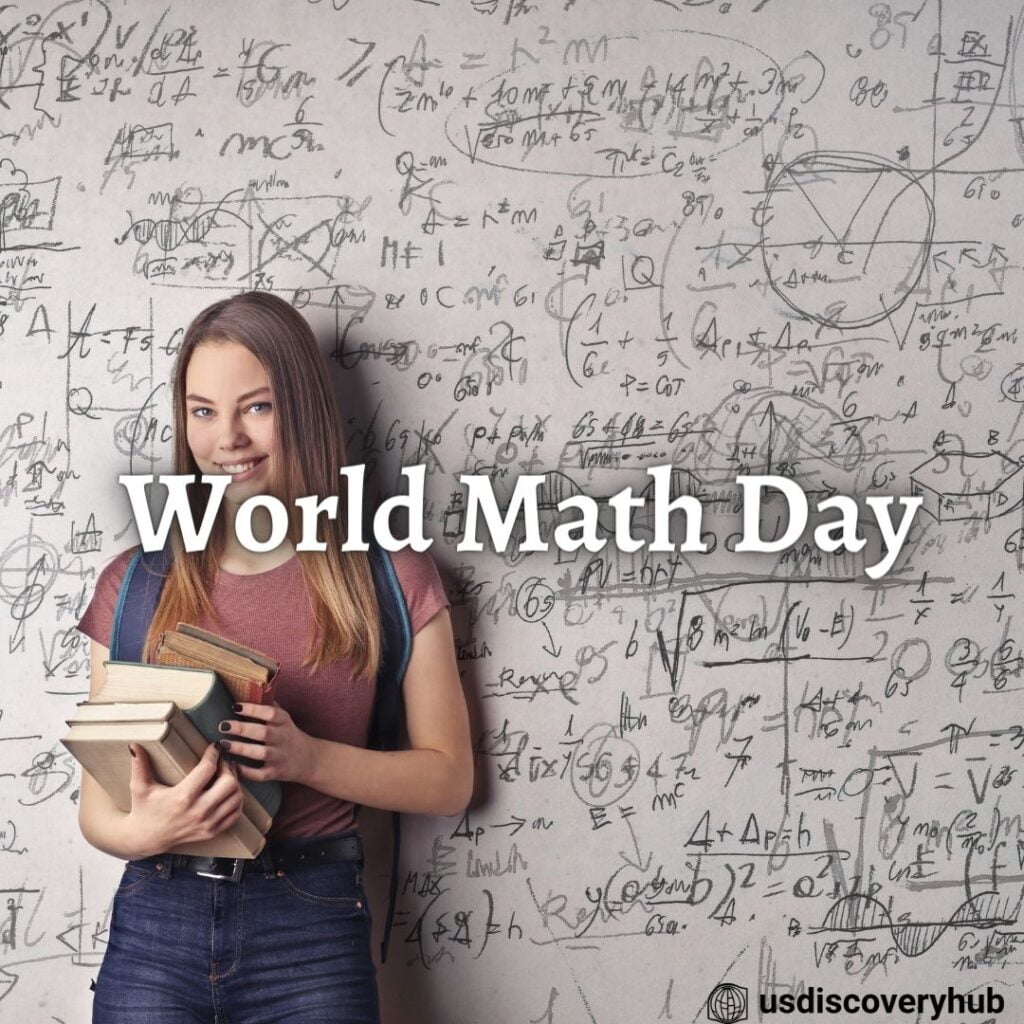
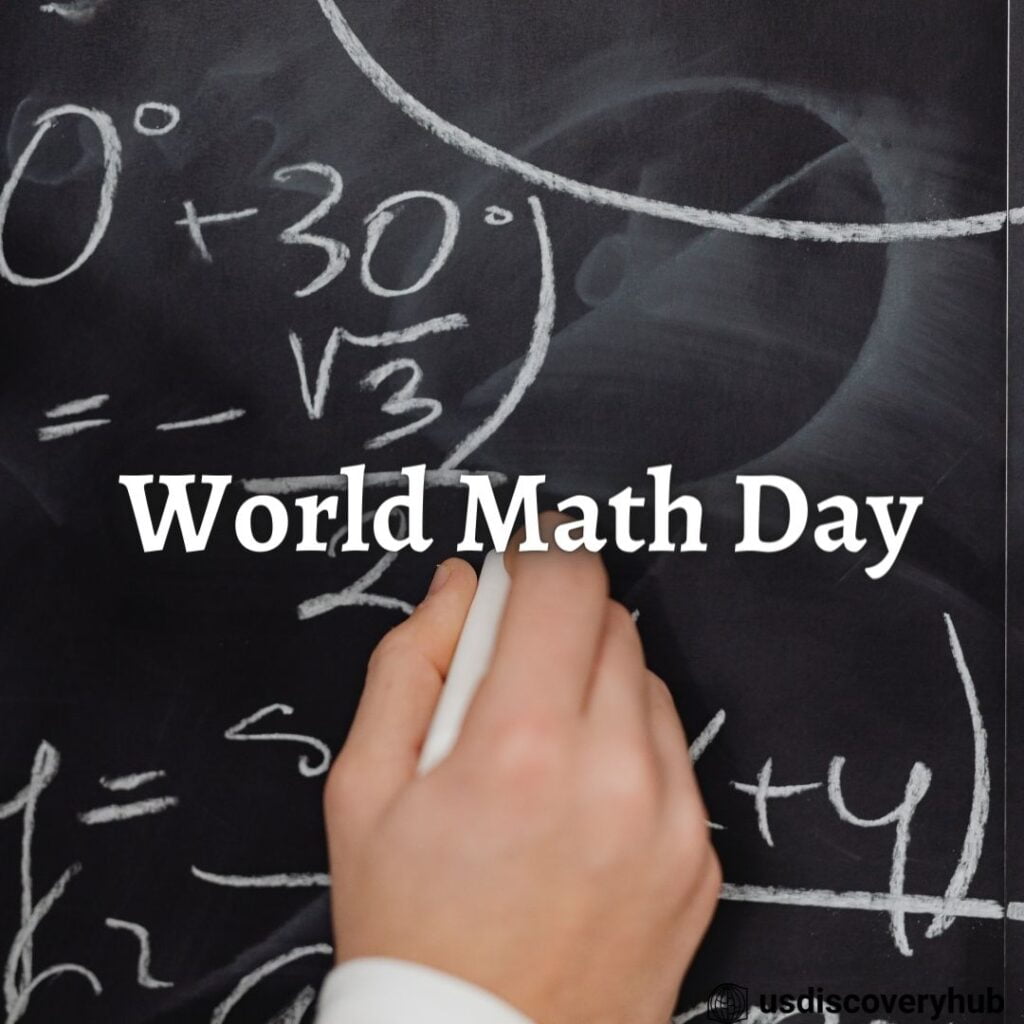
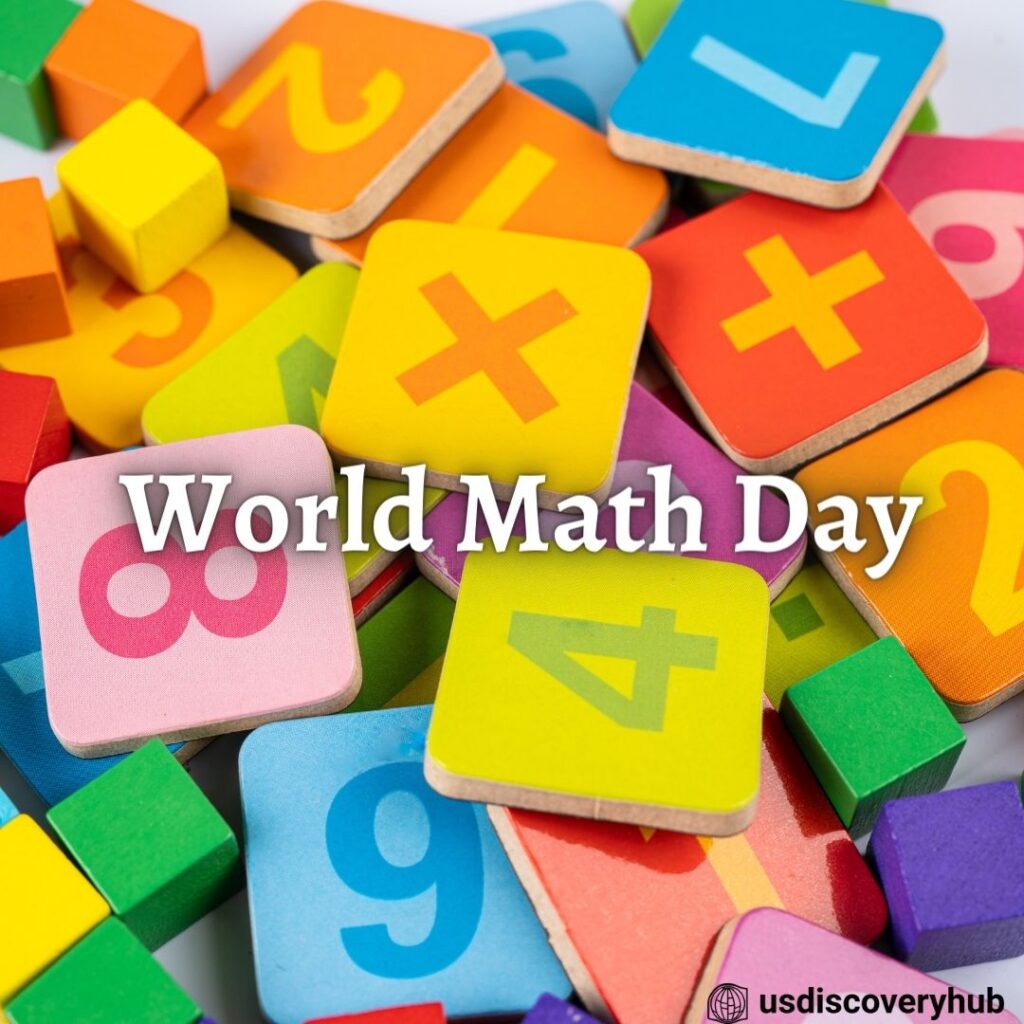
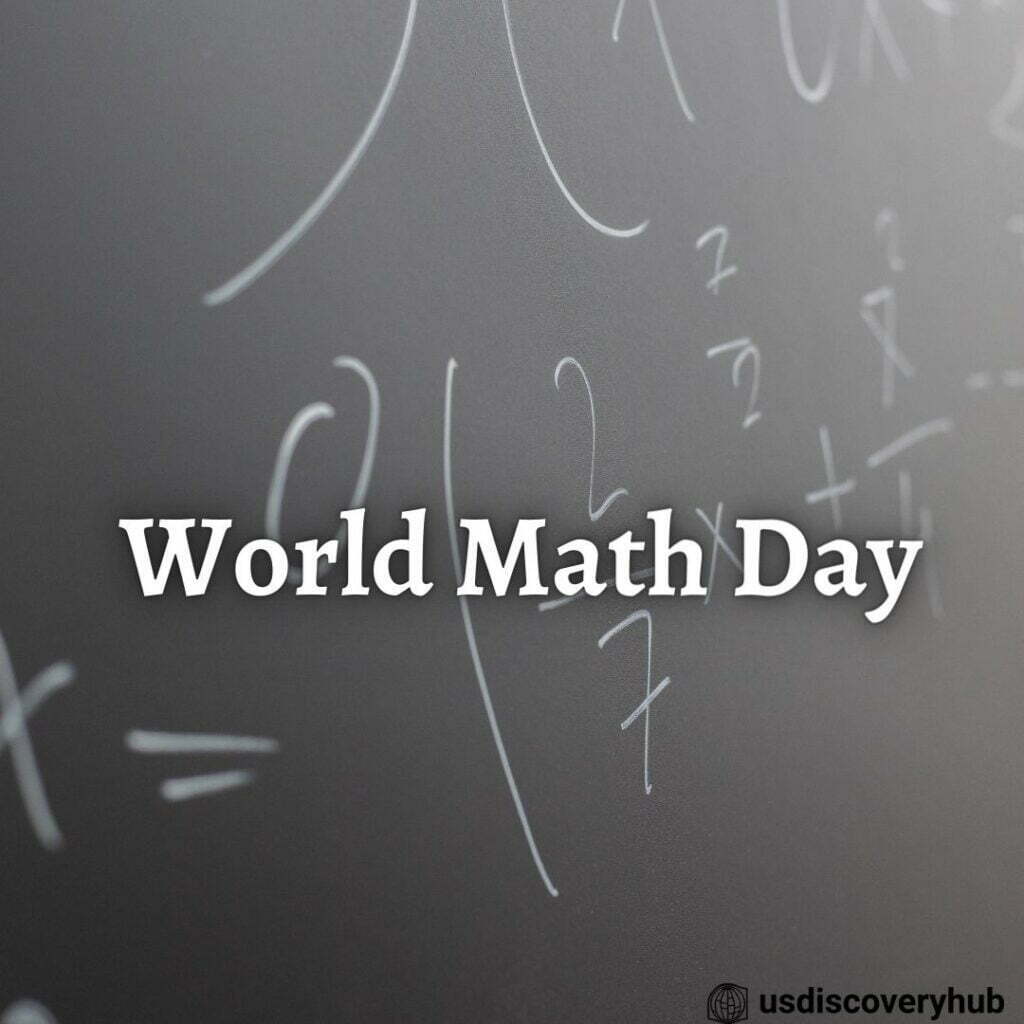

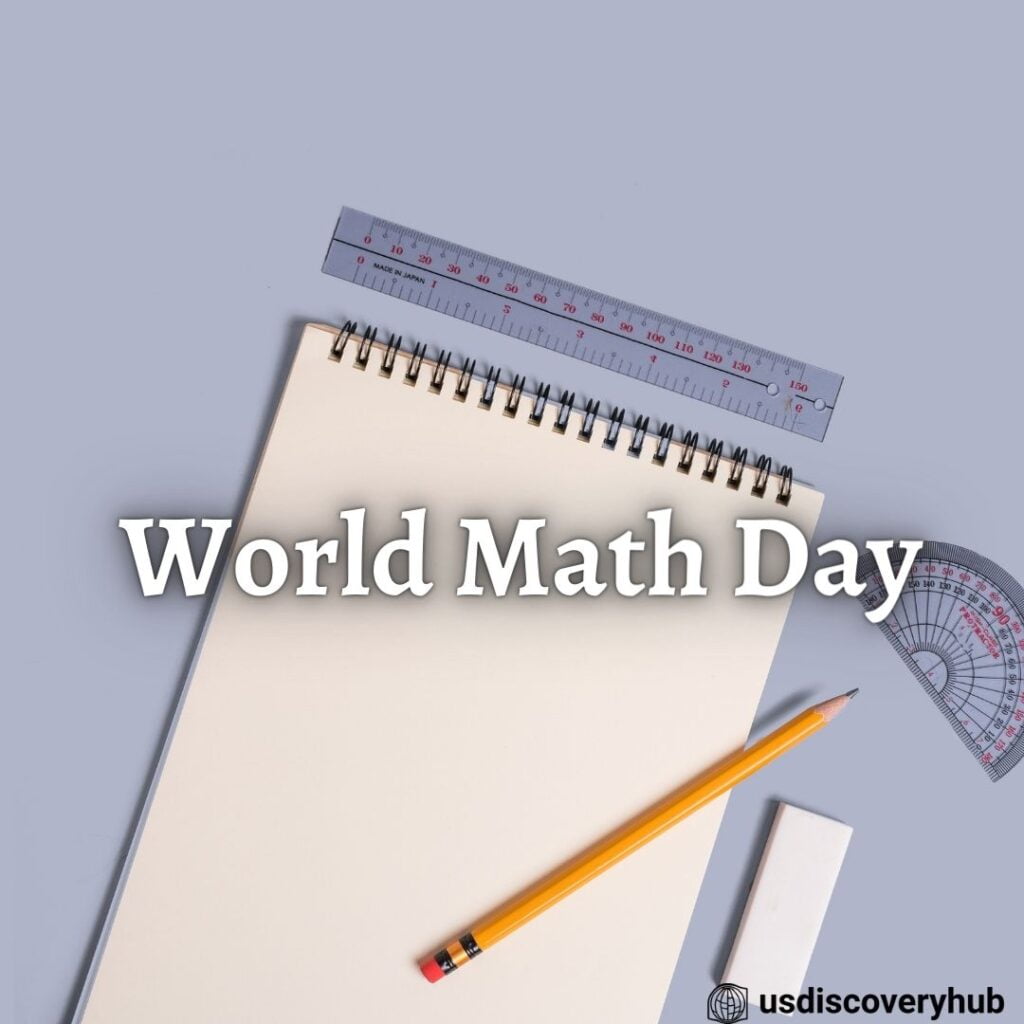
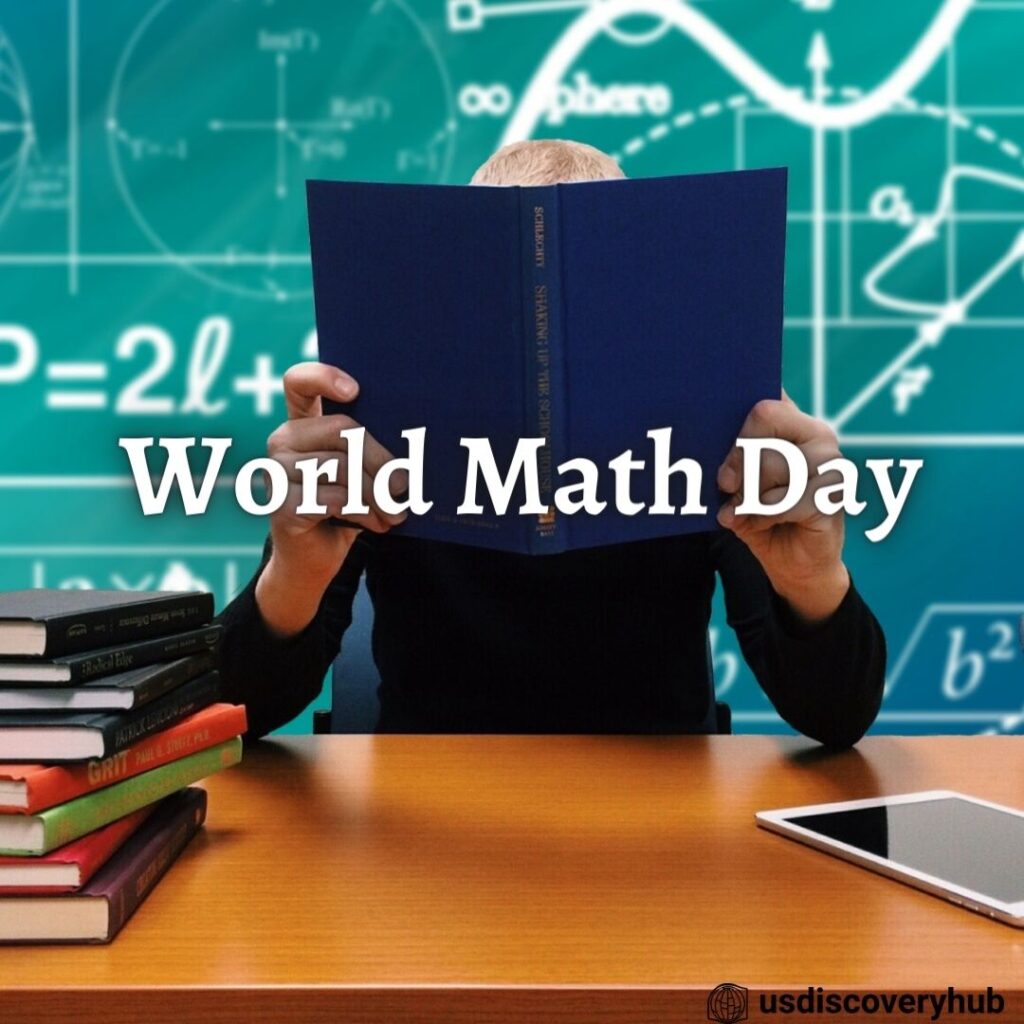
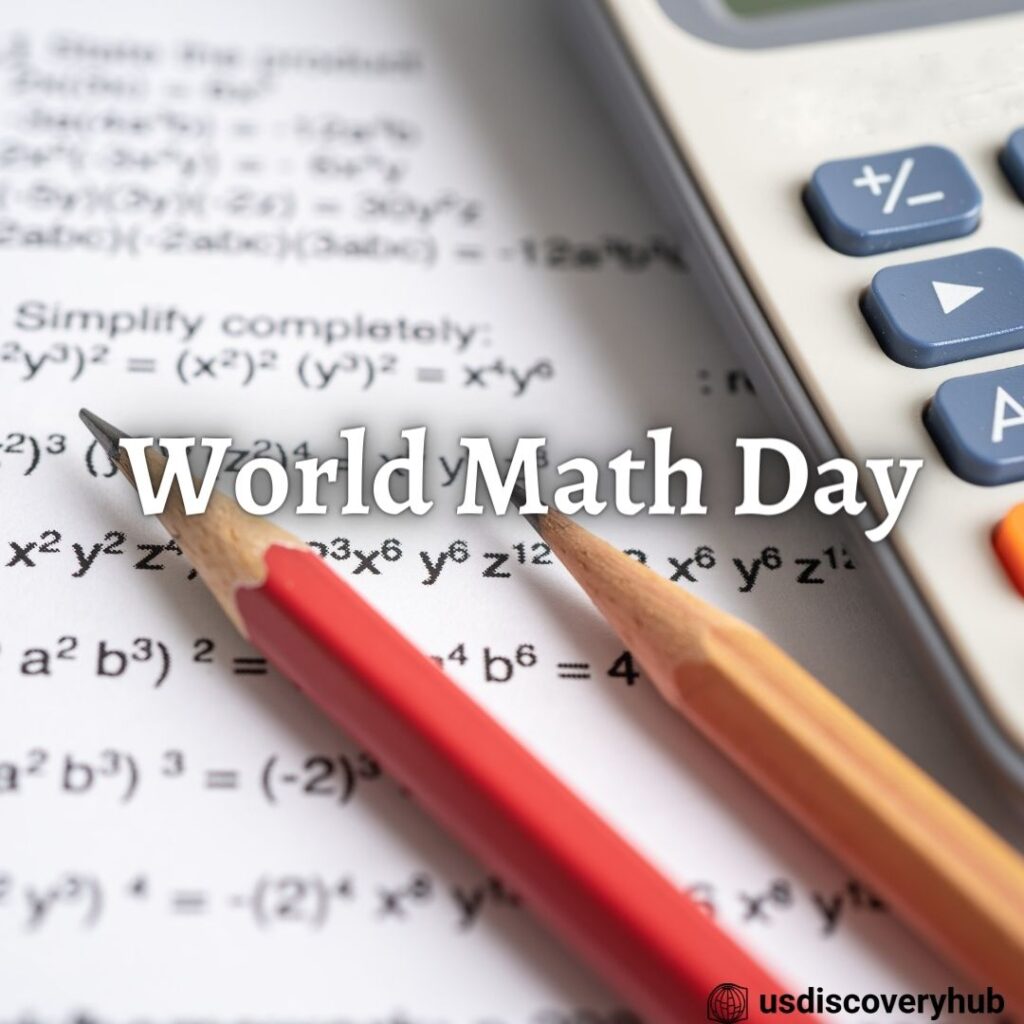
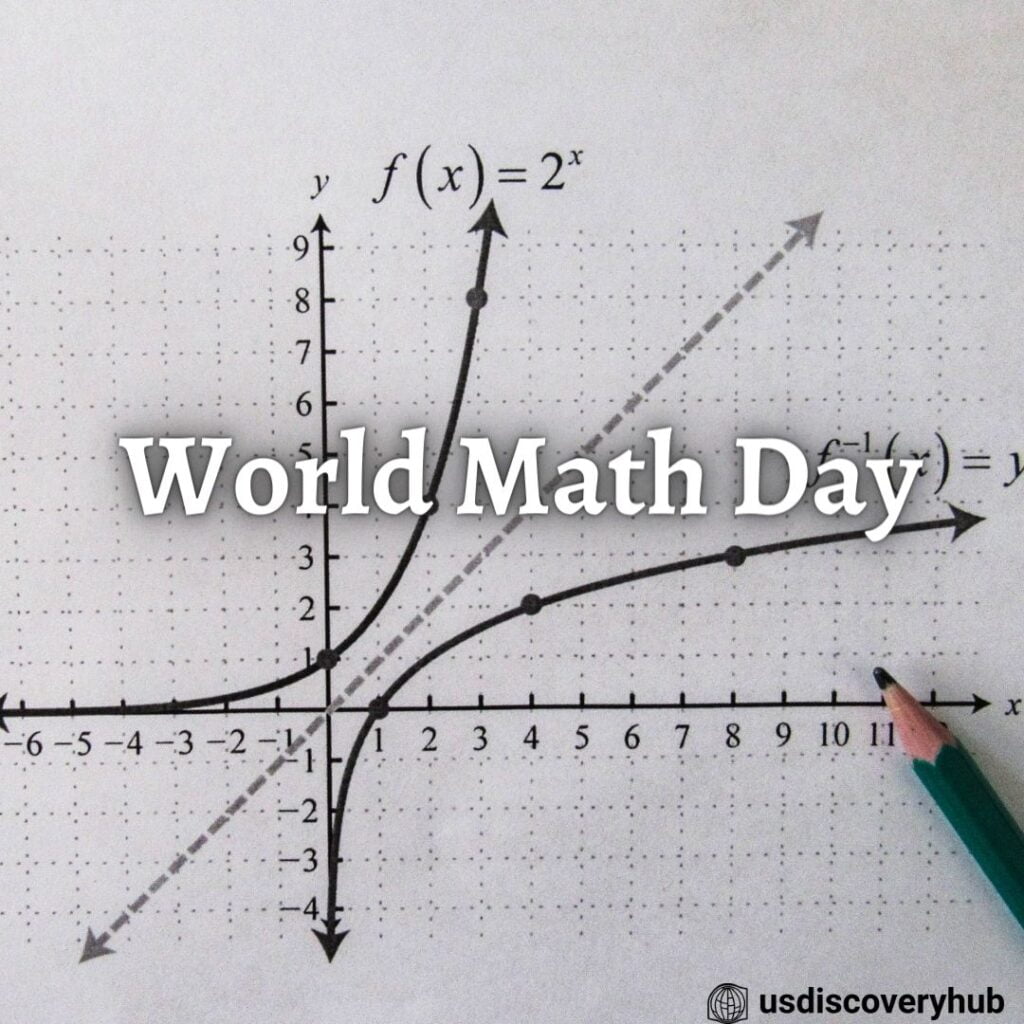
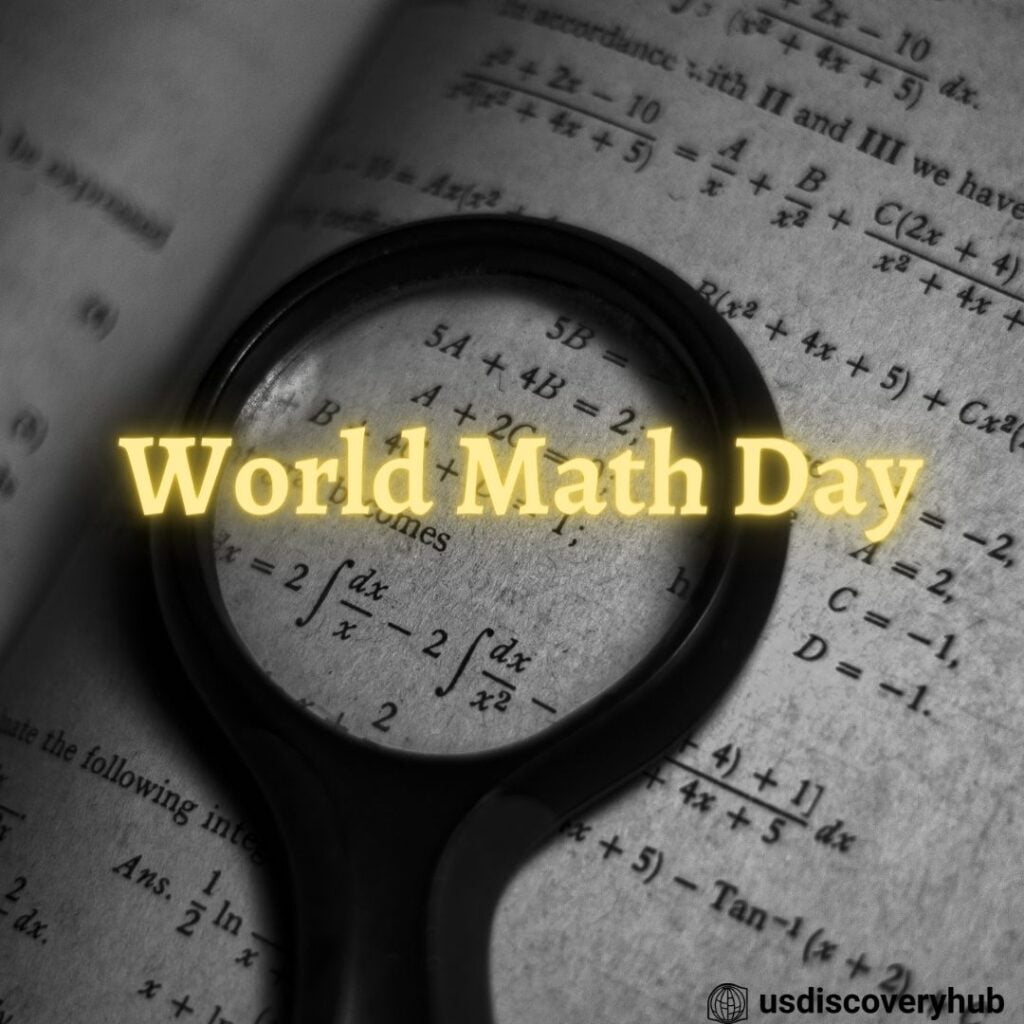
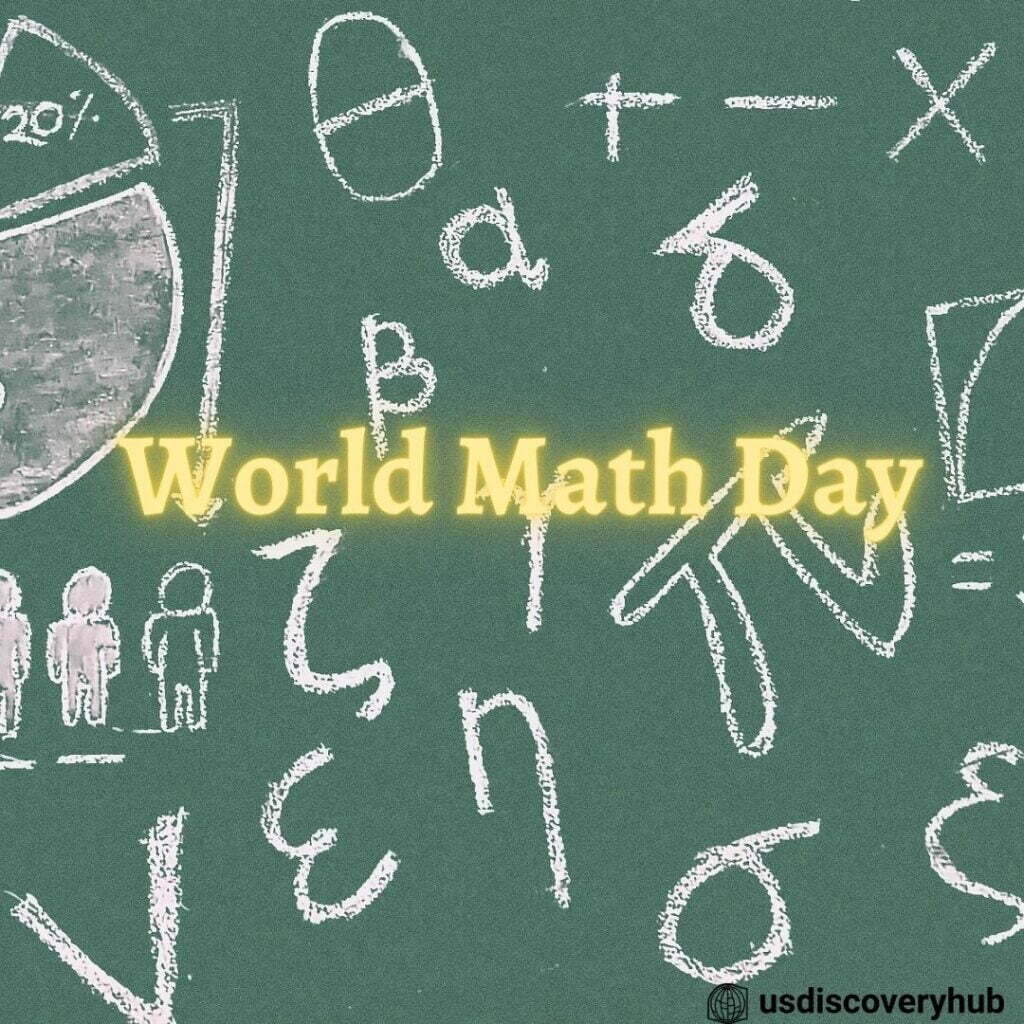
Who is international father of maths?
There is no official or widely recognized “father of maths” on the international level. The development of mathematics as a field of study can be traced back to ancient civilizations such as Egypt, Greece, and India, and has been built upon by countless mathematicians over the centuries. There are many individuals who have made significant contributions to mathematics, such as Pythagoras, Euclid, Isaac Newton, Leonhard Euler, and Carl Friedrich Gauss, to name a few. However, the field of mathematics is the result of the collective work of countless individuals throughout history and across cultures.
FAQ
What is World Math Day?
World Math Day is an annual international event that aims to promote mathematics and increase engagement in math education. It is typically held in March and involves students from around the world competing in math games and activities.
Who can participate in World Math Day?
World Math Day is open to all students from around the world, regardless of age, grade level, or location. Students can participate individually or as part of a team.
What types of math activities are involved in World Math Day?
World Math Day typically involves math games and activities that are designed to be fun and engaging, while also helping students to develop their math skills. The games cover a range of topics, including arithmetic, geometry, algebra, and problem-solving.
How do students participate in World Math Day?
Students can participate in World Math Day by registering online and playing math games on the official World Math Day website. Schools can also register and organize their own events and activities for their students.
What are the benefits of participating in World Math Day?
Participating in World Math Day can help students develop their math skills, improve their problem-solving abilities, and increase their engagement in math education. It can also help to foster a sense of community among students from around the world who share a passion for math.
Others Links
History of United States Of America
United States History Timeline
What are 10 historical facts about the United States?
